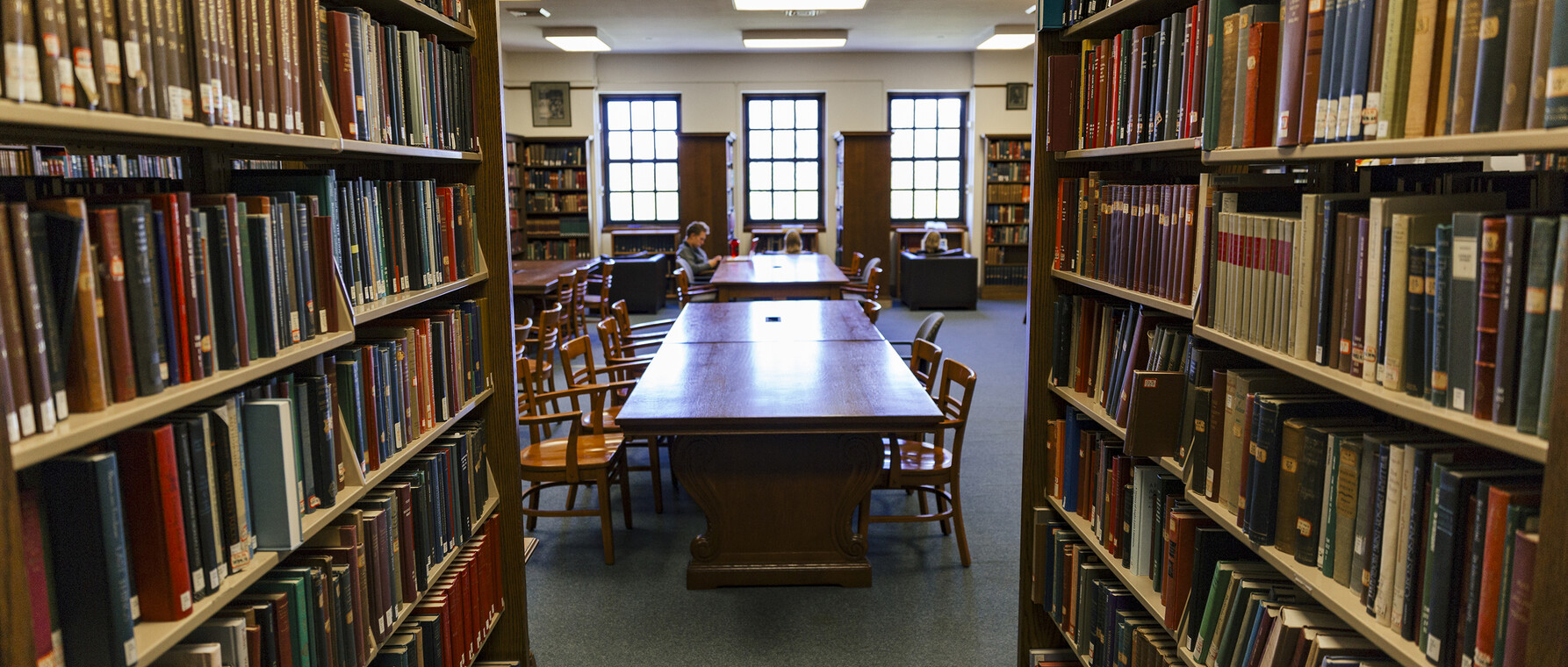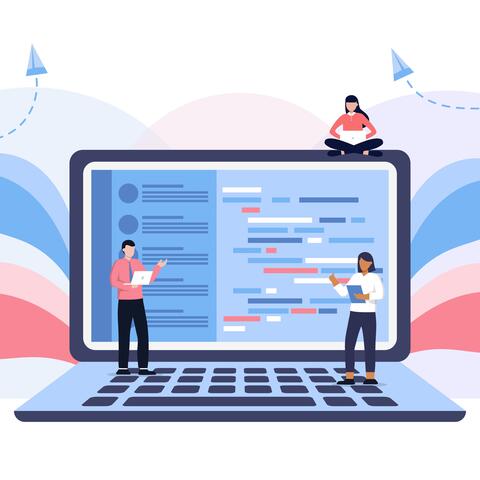Access Anytime, Anywhere
Harvard Library’s online services help GSAS students get the most from remote learning and research.

Harvard Library has for decades offered resources that extend well past the boundaries of its buildings, enabling patrons to access information both on and off campus. Even in a digital age, though, the stately edifices, scores of books and physical collections, and the experience of studying in one of the libraries can reinforce a sense that GSAS students must be on campus to access the resources they hold. Can one really take advantage of all that Harvard Library has to offer in an age of COVID-19 and remote learning?
“Yes!” says Kerry Conley, director of communications for Harvard Library. “ Harvard Library is about access to knowledge and making that access as easy and as seamless as possible. I don't want to say there is nothing we cannot get to you digitally, but generally, if you let us know what you need, we will figure out how to get it to you.”
Conley says that, during the COVID-19 pandemic, the library is constantly innovating to offer new services to students, to expand access to resources, and to make it easier than ever to access them. Along those lines, she offers some tips to GSAS students looking to get the most out of Harvard Library while learning and working off campus.
- Ask a librarian: As the world’s largest academic library with 20.4 million volumes, 180,000 serial titles, an estimated 400 million manuscript items, 10 million photographs, 124 million archived web pages, and 5.4 terabytes of born-digital archives and manuscripts, Harvard Library can be more than a little overwhelming. If you’re having trouble knowing where to start your project, why not ask one of the scores of reference librarians on call to help? You can chat live with library staff from 9:00 a.m. to 6:00 p.m., Monday through Friday, make an appointment for a face to face consultation via Zoom or Skype, or simply send an email. You’ll usually receive a response within 24 hours.
- Become a pick-up artist: If, like many GSAS students, you’re living locally, you can easily borrow a physical copy of, say, James Baldwin’s novel If Beale Street Could Talk. Just find the book on HOLLIS, scroll down to the “Get It” section of the listing, and click “Request Pick Up.” You’ll receive an email when the book is ready—usually one to four days after request—and some instructions on how to schedule your pick up at Lamont Library.
- Scan and deliver: If a trip to the library isn’t in the cards because you live far from campus or because you have concerns about the coronavirus, chances are you can still get what you need delivered straight to your email inbox. Make a request and Harvard Library will scan the section of the book that you need and send it via email. Need to explore something from the archives or special collections? Librarians will scan most items on demand. Students can also browse the more than six million digitized items—from botanical illustrations to English crime broadsides—in the Harvard Digital Collections. “Whatever you need, we can help,” says Conley.
- Lean in: Your colleague forwards you a link to the latest study in the Journal of the American Medical Association on vaccine efficacy and variants of the coronavirus. You click through but can’t read because you have no subscription. Does Harvard? You could spend valuable time trying to find out and get the login info, or you could simply install the Lean Library extension on your web browser. Whenever you land on a website that has content Harvard subscribes to, the book stack icon in your browser will glow green. Click to login and, boom, the content you need is on your screen.
- On hold and online: Harvard Library’s digital course reserves make it easy for teaching fellows to line up course readings—and for students to access them. The system functions much like in-library course reserves. Teaching fellows reach out to the library with the readings they need for their class. Instead of going to the building and getting the text from the circulation desk, though, students log on to the course’s Canvas site and get access to an electronic version of the reading for two hours.
- The media is the message: Maybe you’re tired of text—both reading and writing it. You convince the professor in your Hindu studies course to allow you to submit your final project in the form of a video. Pre-pandemic, you could count on the folks at the Lamont Media Lab for help with shooting and production. During the pandemic, you still can. The media group offers remote help with video, podcasting, Zoom, data visualization, editing software, and even virtual reality. “Stop by” their virtual help desk Monday through Friday from 9:00 a.m. to 4:30 p.m. In a different time zone? The Media Lab staff are also available by appointment.
- Keep your eyes on the prize(s): You knew that Harvard Library could help put knowledge in your noggin. Did you know it could also put money in your pocket? The library administers a number of fellowships and grants open to GSAS students including the Philip Hofer Prize for Collecting Books or Art. Awarded each year to a student or students whose collections of books or works of art best reflect the traditions of breadth, coherence, and imagination exemplified by Philip Hofer, AB'21, LHD '67, founder and first curator of the Department of Printing and Graphic Arts at Houghton Library and secretary of the Fogg Art Museum. Worried that your collection isn’t stocked with rare first editions? Don’t be. According to the prize website, “The cost and rarity of collection items and the size of the collection are not criteria [for determining prize winners].” Cash awards range from $750 to $3,000, which will buy you a truckload of remainders at Harvard Book Store when you’re back on campus.
- Browse the stacks: HOLLIS can’t deliver the in-library sensation of being immersed in a universe of books old and new. With virtual browsing, however, it can bring back some of the fun of finding something unexpected and interesting while you dig through the shelves. Just search for a title and scroll down to “Shelf View” to see what volumes lie on either side of the one you’re looking for. (Now if they could only recreate the pleasantly musty smell of Widener’s stacks!)
Conley has one last tip for GSAS students: Stay connected. Even as vaccination picks up, the pandemic promises to keep campus de-densified through the end of spring semester. As it does, Harvard Library will continue to offer new ways to access its extraordinary resources. Conley encourages students to sign up today for the library’s Service Restart newsletter to stay up to date on news and tips that can help them get the most out of their online research experience. If she could offer GSAS students one piece of advice, however, it would be this: talk to a librarian. "Seriously,” she says, “they want to hear from you and they can be incredibly helpful with your research, teaching, and coursework. Just reach out to start a conversation and see where it takes you!"
Get the Latest Updates
Join Our Newsletter
Subscribe to Colloquy Podcast
Simplecast Stitcher





